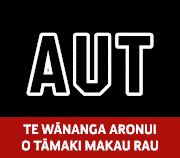This can happen when you decide to live together, income earnings decrease or increase, or you need to take time off from work to look after children or study. Either way, it is unlikely that two people spending their own money and doing their own tasks within a relationship is going to work well in the long term.
Research suggests there can be value in couples having their own money for discretionary spending, as well as a joint fund for shared expenses.
How this is decided will be specific to the individual and collective needs of your particular relationship.
When deciding you should think about: how much income each partner earns, what are the other household contributions, if there are any existing financial commitments and so on.
Regardless of how things are calculated there is a need for each person to feel a sense of autonomy over their own financial lives, while still maintaining a transparent and open approach to the management of the household finances.
Consider the following
OWNERSHIP
Who has access to assets and income?
DECISION MAKING
Who decides how the money is earned and where the money goes, including daily costs, unusual expenses, investments, and giving?
ACCOUNTABILITY
How do you keep each other focused and responsible for your financial plan?
MANAGEMENT
Who balances the accounts, oversees investments, figures out taxes, makes budgets, pays bills?
ACCESS
Do both parties need to access household money, and is discretionary money different or kept separate?
Bank accounts
We explore the pros and cons of separate and joint bank accounts.
Your own account is owned solely by you and can only be accessed by you.
Having separate accounts can provide more control and autonomy.
However in relationships they may create a sense of inequality, especially if one partner is secretive with spending.
A joint account is shared by you both. You both have equal access to all of the money in the account and are equally liable for any debt.
Joint accounts may promote equality and shared control.
However if one person takes all the responsibility for managing the account there may be an increased risk of financial abuse.
Having both allows you to pool resources.
It also helps you plan which expenses will be shared and how much money will be left over for you to spend however you like.
It’s also important to note that having separate bank accounts does not necessarily mean that money remains separate if the relationship was to end.
From a legal perspective, like other assets, money can be considered ‘relationship property’.
Assets
When you are in a relationship, assets and money that you consider your own may still be treated as relationship property by the Property Relationships Act.
Regardless of whether couples combine their incomes or assets, it is good to discuss the topic, especially if there is a shift in a person’s income or if one person feels unhappy about the ownership structure of assets.
When it comes to assets, having things (the family home, family trust, investments etc.) in only one name can be an issue for the other partner. How asset ownership is set up in a relationship can affect an individual’s sense of equality and power.
If you are feeling unsure about these things, below are some suggested ways you could frame a conversation.
I’ve been thinking about our house being in one name only, it feels like I am just a boarder in your house. Can we talk about changing that?
Since we have been together now for several years, and have been paying off the mortgage together - can we look at changing the house into a shared title?
As your life begins to merge with your partner, it’s important to discuss your money moving forward. Joint accounts and financial management might not be the right option for you – but ultimately, the decision to combine or keep finances separate is a joint one.
Community Law has further information about relationship property that may help with planning and decision-making.


“It is great to have the strategies and challenges come together so that you are learning together, sharing together and discovering together”
– Toolkit user
Good Shepherd NZ in partnership with Dr Ayesha Scott
AUT Finance Department
Disclaimer
The information, content and materials provided in our Healthy Financial Relationships Toolkit is for general informational purposes only and does not take into account the financial situation and/or particular needs of any person. Before making important financial decisions, you should seek professional advice if possible. This Toolkit contains links to other third-party websites. Such links are only for the convenience of the reader, user or browser. Good Shepherd NZ and AUT do not endorse the contents of third-party sites.
Did you find this useful?
We are a not-for-profit organisation working to improve the financial and social wellbeing of New Zealanders.
The resources on this website are provided free of charge to make sure they are available for people who need them.
If your organisation found these resources helpful, please consider making a donation to ensure we can continue supporting those people who need our help.
You can also make a donation, or set up a recurring donation, by contacting us directly



